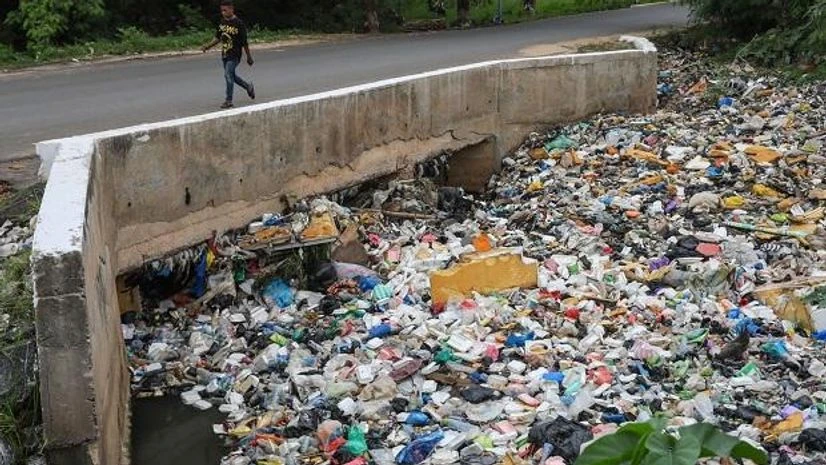Plastic pollution across the world can see a reduction of up to 80 per cent by 2040 if companies and countries make policy and market shifts using existing technologies, said United Nations Environment Programme (UNEP) on Tuesday.
The report "Turning Off The Tap" was released on Tuesday, ahead of the negotiations resuming in Paris seeking a global agreement to beat plastic pollution.
The report highlights the magnitude and nature of changes required to end plastic pollution and to create a circular economy to replace the widespread use of single-use plastics and their inappropriate disposal.
Plastic pollution undermines marine ecosystems and contaminates oceans. The presence of microplastics – tiny fragments resulting from the disposal and breakdown of consumer products and industrial waste – are increasingly found in the human food chain.
According to the report, one million plastic bottles are purchased every minute while up to five trillion plastic bags are used worldwide every year. In total, half of all plastic produced is designed for single-use purposes, the UNEP confirms. About 400 million tonnes of plastic waste are generated every year.
Also Read
To reduce the problem of unnecessary plastics, the report suggests tackling the problem with the approach of 'reuse, recycle and reorient and diversify products.'
On 'reuse' options, it endorses transforming the throwaway economy to a reuse society, by creating an enabling environment to ensure the reuse market has a stronger business case than the single-use plastics market. It further adds that reuse systems provide the highest opportunity to reduce plastic pollution (a reduction of 30 per cent by 2040) by replacing some of the most problematic and unnecessary products.
'Recycling' can help reduce plastic pollution by an additional 20 per cent, if only it becomes a more stable and profitable venture.
A careful approach is needed to bring the 'reorient and diversify products' practice in place. The report suggests shaping the market for plastic alternatives to enable sustainable substitutions, thus avoiding replacing plastic products with alternatives that displace rather than reduce impacts. Sustainable alternatives could reduce pollution by 17 per cent by 2040.

)
